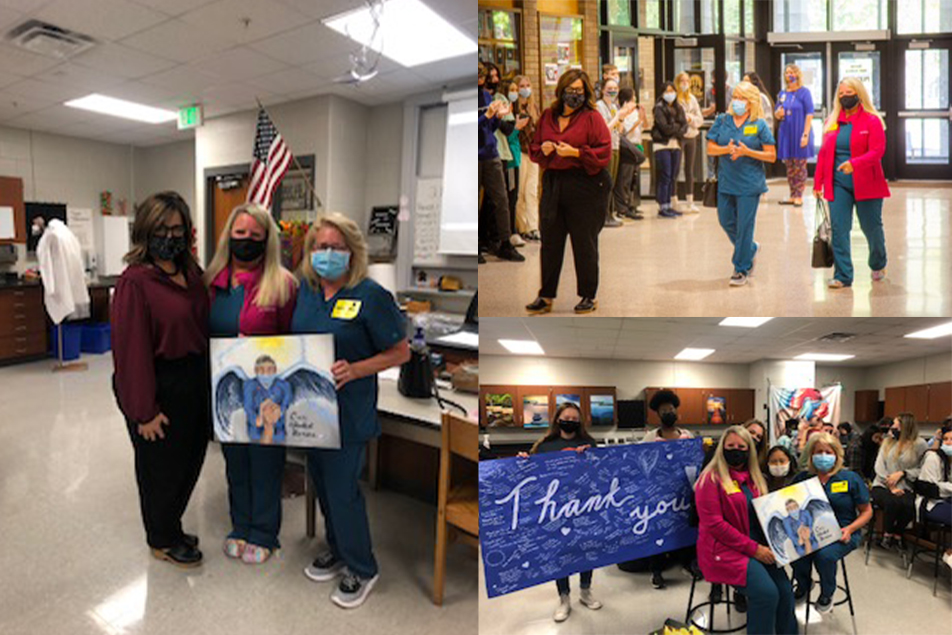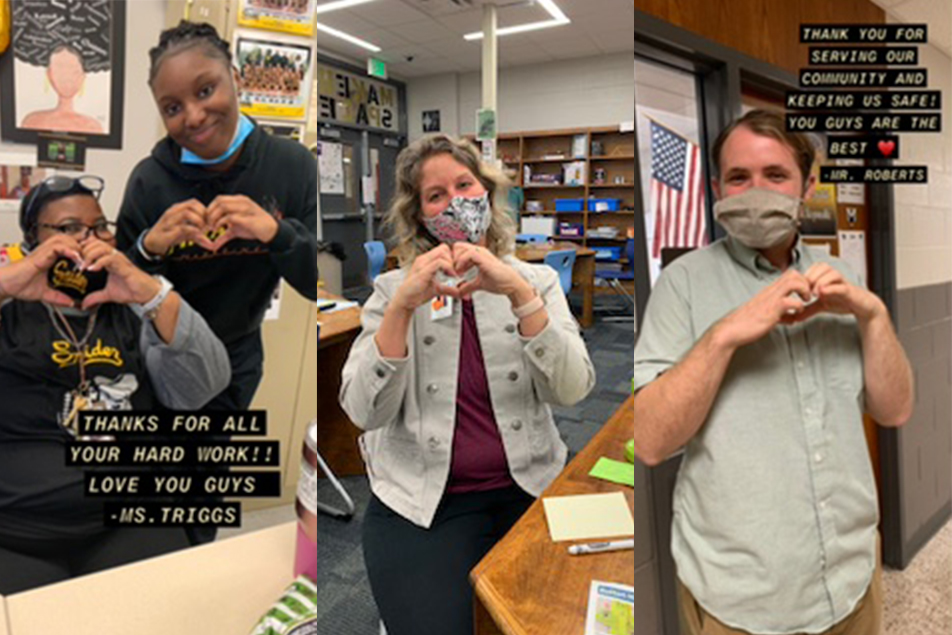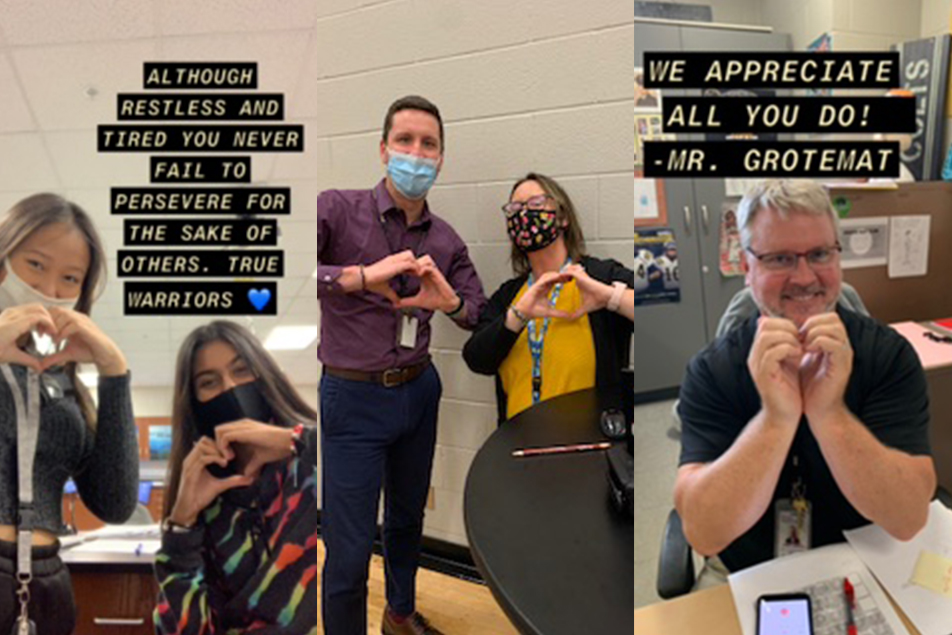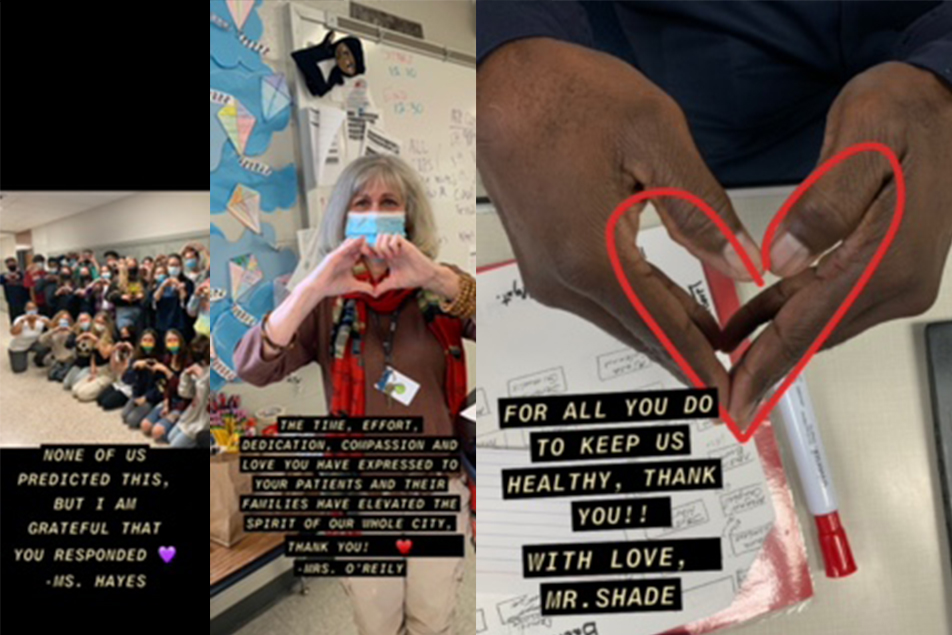
For more than two decades, Christina Ehle-Fails, MS, LAT, ATC, has been a high school athletic trainer and Biomedical Sciences teacher at Snider High School. It’s not uncommon to see her on the sidelines at a host of local sporting events when she isn’t teaching. In 2020, when the COVID-19 pandemic suspended both in-person teaching and sports events, she decided to volunteer to do what she could on the frontlines. Now, back in the classroom, she’s sharing the lessons she learned in the Parkview Medical ICU with her BioMed students. She shares her experience with us here.
A brave shift
For more than 20 years, I was a full-time athletic trainer for Parkview Sports Medicine and teaching. In March 2020, all athletics shut down. We were sent home from school and teaching remotely. I was very fortunate to keep both of my jobs. Parkview also gave us opportunities to help where we could in the hospital.
I volunteered for night shifts in the MICU. To be honest, I think I was placed there simply because of my willingness to go. A lot of my co-workers had small children and there was just so much we didn’t know, including how contagious and deadly the virus was.
While I was there, I met some phenomenal people. The doctors, respiratory therapists, nurses … everyone was so amazing. I told myself, ‘I’m going to be here for 12-hour shifts, and I need to do everything I can to help these folks.’ I did the things I knew how to do; I cleaned, stocked supplies, ran errands. I’m good at massages, showing how to stretch and adjusting hips, so I did those things. I can cook, so I brought in food.
And believe me, they needed the help. These frontline workers were inundated with patients and seeing death at rates they’d likely never seen before, particularly in those early days. They were still figuring out how to treat this new virus. I love medicine and teaching BioMed, so it was such an amazing learning experience to be able to witness the process of figuring out how to address this pandemic.
At first, they didn’t know who I was, but that definitely changed by the end of my time with them, in June 2020. I developed lasting relationships with many of the people I worked with during that time. We certainly stay in touch.

Sharing lessons and fostering gratitude
When things started opening back up, it was definitely hectic. I decided to go part-time with Parkview Sports Medicine to also keep up with the hybrid teaching schedule for Snider.
A top priority for me with my BioMed students, is to teach them how to be community-minded and aware of the needs of others. Coming back from my time in the MICU, I was very eager to share some of the lessons I’d learned.
My students sent letters to respiratory therapists and raised enough money to provide gift cards to nearly every person in the MICU. Two of my students, Angel Aye and Avery Edwards, worked together to create original artwork for the MICU.

We invited some of the MICU team members to come to the school to receive the art. I’d shared my experience participating in an honor walk when I was volunteering. The students wanted to do a celebratory honor walk for the MICU ladies when they arrived. It snowballed from there; they got flowers and gifts, and made a tribute video featuring staff and students. The kids were great!
Sheri Mulligan and Vicki Brady came for their honor walk, representing all of Parkview’s MICU, on October 20, 2021. It was an emotional day, with lots of tears. They took the artwork back to the hospital and plan to mount it in their area for all to enjoy.

Forever changed
I think about my time in the MICU often. This fight is not over for the men and women working in our hospitals. This pandemic is still going, and they’ve already experienced so much trauma.
Sports opened back up in July 2020 and all of our extra hands went away. We weren’t there to help turn patients or serve as screeners. We weren’t stocking gowns or helping to move equipment.
I’d never stepped foot into a MICU, so that first night, I was stunned. Watching how people had to get completely gowned up to go into a room. Seeing the IV poles with up to a dozen medications hanging outside of the rooms. At the time, a good friend of mine, Sarah Mohrman, had both of her parents in that MICU battling COVID-19. I would walk by each room and just pray. It was all I could do for them. I could pray and I could love them. It brings tears to my eyes now to think about it.
But it was scary, too. I remember driving home after a shift so exhausted. Then I’d spray down my car, strip off my clothes at the door and go shower. I was fearful. There was no vaccine. The day I signed up for my COVID vaccine, I cried. The day my father got the vaccine, I cried. It meant so much after what I’d seen. After I’d watched those caregivers fly around doing everything they could to save so many.
When people talk about life-changing experiences, this truly was for me. It’s influenced the way I teach in so many ways. I try to influence my students to be critical thinkers. To do the research, with reliable sources, and form conclusions based on facts.
I would go back to the MICU to help again in a second, I really would. The people there are amazing, I can’t say it enough. And I hope that we’ve been able to show them that we’re all behind them.